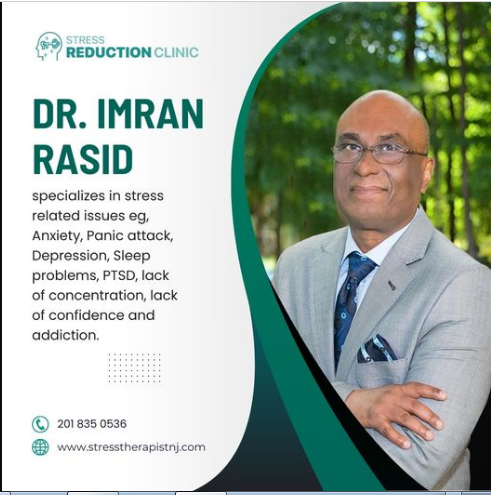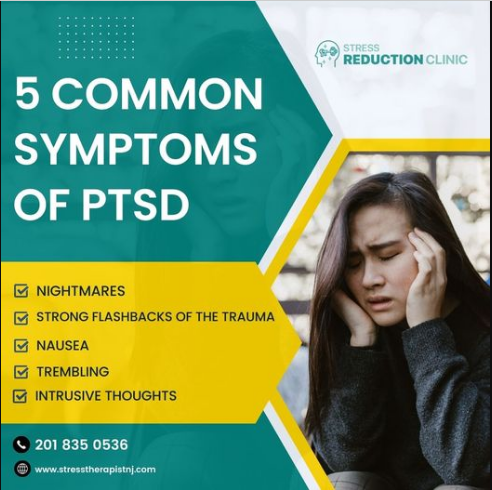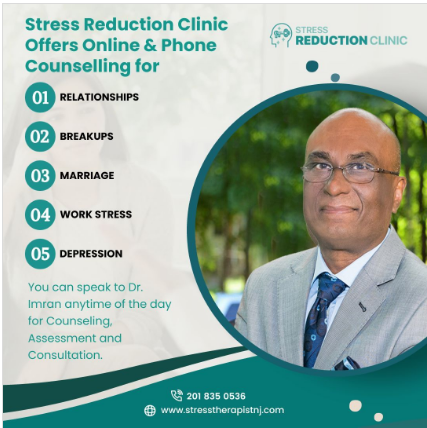1. Understanding the Importance of Mental Health Care in New Jersey
New Jersey, with its fast-paced lifestyle and diverse population, often brings about a unique set of mental health challenges. Whether it’s the pressures of urban living, work stress, or personal issues, understanding the importance of mental health care is crucial. This understanding begins with acknowledging that stress is not just a fleeting feeling but a significant factor that impacts overall well-being.
2. What is Stress and How Does It Affect Your Life?
Stress is more than just feeling overwhelmed. It manifests in physical, emotional, and behavioral symptoms that can significantly affect daily life. From anxiety and irritability to sleep disturbances and chronic health problems, the effects of stress are far-reaching. Recognizing these symptoms is the first step towards seeking professional help.
3. The Role of Therapists in NJ for Anxiety and Stress Management
Therapists in NJ for anxiety play a pivotal role in helping individuals manage and overcome stress. These professionals use various therapeutic techniques to help clients understand the root causes of their stress and develop coping mechanisms. The right therapist can help you regain control over your life, providing strategies tailored to your specific needs.
4. Identifying the Signs That You Need a Therapist
Not all stress requires professional intervention, but there are clear signs when therapy is needed. If you find yourself consistently anxious, unable to cope with daily tasks, or withdrawing from social interactions, it may be time to seek help from a Bergen County psychotherapist or another qualified mental health professional in New Jersey.
5. Exploring Different Types of Therapy Available in New Jersey
New Jersey offers a variety of therapeutic approaches, each tailored to different needs. Cognitive-behavioral therapy (CBT), mindfulness-based stress reduction (MBSR), and psychodynamic therapy are just a few examples. Understanding these options can help you choose the best approach for your mental health issue.
6. Stress Reduction Clinics: A Haven for Healing
Stress reduction clinics in New Jersey provide specialized environments where individuals can focus on healing. These clinics offer comprehensive services, including one-on-one therapy, group sessions, and wellness programs designed to address stress from multiple angles. Whether you’re dealing with mild anxiety or severe stress, these clinics offer a supportive space for recovery.
7. Depression Therapists in Paramus, NJ: A Closer Look
Paramus, NJ, is home to some of the leading depression therapists in the state. These professionals are trained to address not only depression but also the anxiety and stress that often accompany it. By focusing on holistic treatment plans, they help patients regain their sense of self and improve their quality of life.
8. Bergen County Psychotherapists: Specialists in Stress and Anxiety
Bergen County psychotherapists are known for their expertise in treating stress and anxiety. With a deep understanding of the local population's unique challenges, these therapists offer personalized care that addresses both the symptoms and the underlying causes of stress. Whether it’s work-related stress, family issues, or personal trauma, they are equipped to help.
9. How to Choose the Right Therapist for Your Needs
Selecting the right therapist is a personal and crucial decision. It involves considering factors such as the therapist’s specialization, approach, location, and your comfort level with them. New Jersey has a diverse pool of therapists, so taking the time to find one who matches your specific needs can make all the difference in your mental health journey.
10. The Benefits of Regular Therapy Sessions
Engaging in regular therapy sessions provides numerous benefits, including improved mental clarity, better stress management, and enhanced emotional resilience. Regular sessions with a therapist in NJ for anxiety or stress can help you maintain mental health stability and prevent minor issues from escalating into major problems.
11. Overcoming the Stigma Associated with Therapy
Despite the increasing awareness of mental health issues, there is still a stigma associated with seeking therapy. However, in a state as progressive as New Jersey, more and more people are recognizing the value of mental health care. Overcoming this stigma is essential for those who need help but may be hesitant to seek it.
12. Next Steps: Taking Action Towards Better Mental Health
If you or someone you know is struggling with stress, anxiety, or any other mental health issue, the next step is to take action. Whether it’s reaching out to a Bergen County psychotherapist, visiting a stress reduction clinic, or scheduling an appointment with a depression therapist in Paramus, NJ, taking that first step is crucial for your well-being.














